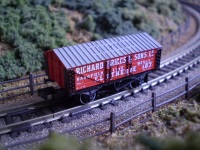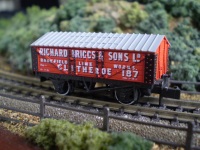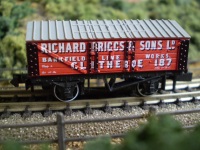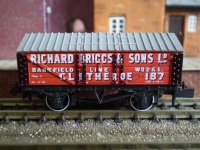Lime-burning is an industry which goes back to medieval times, heating crushed limestone in kilns to turn it into
the highly caustic and volatile quicklime. This was then mixed with water to form slaked lime, a vital component of
mortar and plaster since Roman times. From the 17th century or thereabouts it was also used in agriculture, to
reduce soil acidity and so make poor-quality land fertile. Like all industrial processes, production was limited by
how quickly and easily the raw materials could be brought in and the finished products shipped out, so lime works
tended to be on a small scale to serve local customers. But the 19th century brought the railways to
carry heavy loads from A to B in no time, and for Victorian industrialists the brakes were off. When the railway
arrived in the town of Clitheroe, in Lancashire's Ribble Valley, the local limestone quarries were amongst their
first and biggest customers. With this new-fangled rapid transport to carry the lime direct from kiln to customer
the industry boomed, and Richard Briggs & Sons were amongst the many local businesses taking full advantage.
Their Bankfield lime works had its own connection to the Lancashire & Yorkshire Railway's Bolton to
Blackburn line, and sidings ran under the kilns to allow the finished product to be loaded straight into the
waiting wagons. Lime has to be protected from the elements while in transit, so the wagons were originally sheeted
with tarpaulins and then fitted with low sloping roofs. Eventually the old brightly-coloured wooden wagons were
replaced by covered hoppers made out of steel, and the smaller companies were all swallowed up by bigger corporate
fish. The Bankfield quarry is still in production, but the cement made from its limestone goes out by road tanker,
and Richard Briggs & Sons is no more. Bring them back into the limelight on your layout with our Briggs wagon.
To buy this wagon along with our John F. Scott lime wagon, please go to our 'N' Sets page.
|









